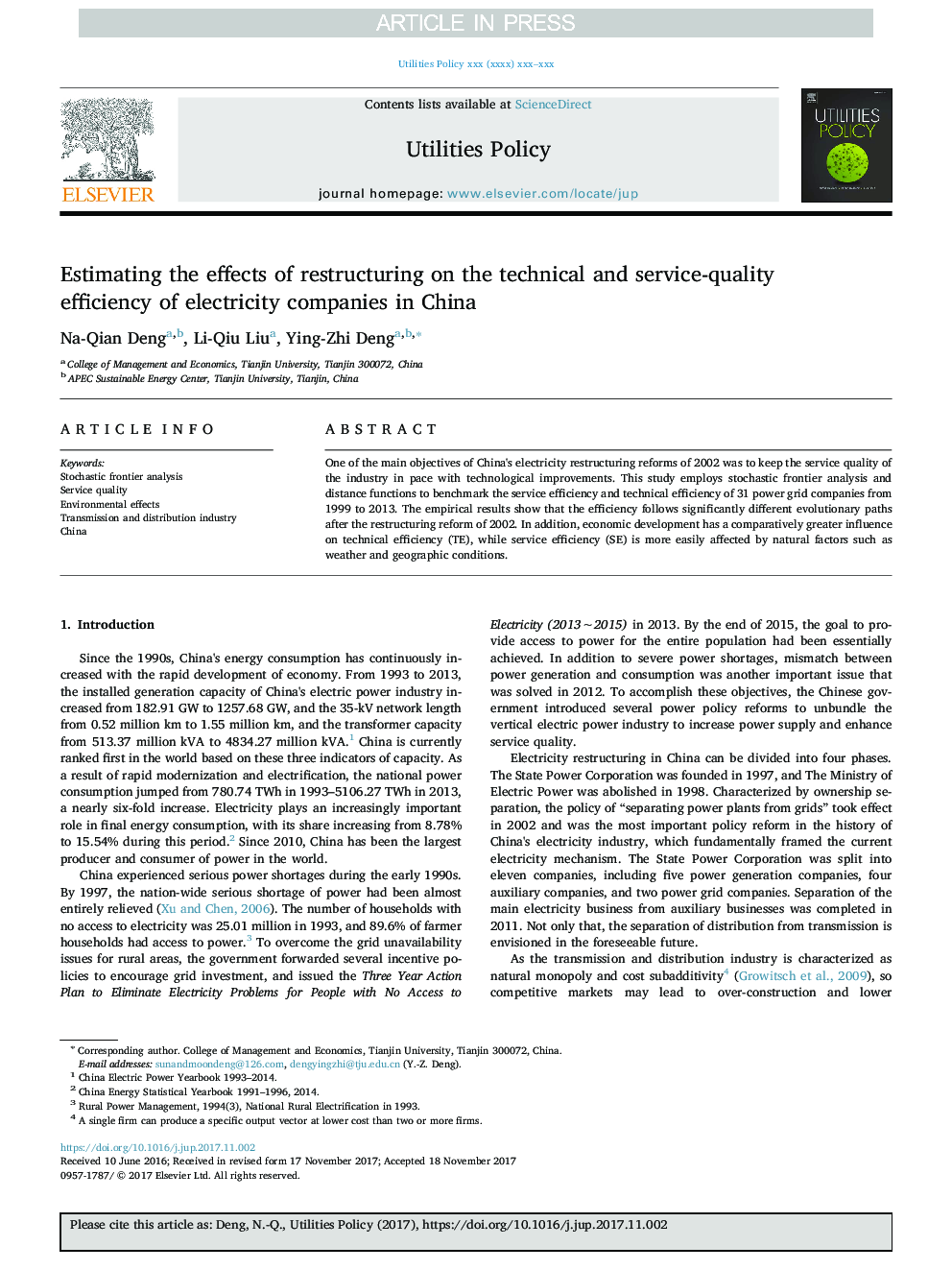| Article ID | Journal | Published Year | Pages | File Type |
|---|---|---|---|---|
| 7411329 | Utilities Policy | 2018 | 10 Pages |
Abstract
One of the main objectives of China's electricity restructuring reforms of 2002 was to keep the service quality of the industry in pace with technological improvements. This study employs stochastic frontier analysis and distance functions to benchmark the service efficiency and technical efficiency of 31 power grid companies from 1999 to 2013. The empirical results show that the efficiency follows significantly different evolutionary paths after the restructuring reform of 2002. In addition, economic development has a comparatively greater influence on technical efficiency (TE), while service efficiency (SE) is more easily affected by natural factors such as weather and geographic conditions.
Related Topics
Physical Sciences and Engineering
Energy
Energy (General)
Authors
Na-Qian Deng, Li-Qiu Liu, Ying-Zhi Deng,
